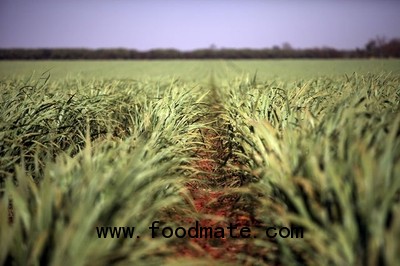
A joint venture between Bunge and U.S. biotechnology company Solazyme Inc. (SZYM) will start late next year to produce oils from sugar. Cane grower Paraiso Bioenergia SA will open the first plant in Brazil by year-end with Emeryville, California- based Amyris Inc. to make raw materials including a substitute for shark liver oil used in lotions. Sao Martinho and ETH Bioenergia SA are planning similar facilities within the next two years.
The business of converting crops into renewable chemicals, facing skepticism from some global investors, is becoming more attractive in Brazil after prices for sugar fell 13 percent in the past year and ethanol slumped 12 percent. Amyris dropped (AMRS) 74 percent this year through yesterday after it delayed the Sao Martinho plant and on concern its projects will fail to reach the scale needed to turn a profit. Solazyme is down 12 percent.
“This is an incredible opportunity for cane mills if the technology is right,” Steven Slome, a consultant at the San Francisco-based energy-research and power-management company Nexant Inc., said in a telephone interview. Companies “may be able to make twice the revenue from the same feedstock.”
Sao Martinho rose 2.2 percent to 24.49 reais at 11:01 a.m. in Sao Paulo, and has gained 46 percent this year. Bunge fell 0.3 percent to $68.72 in New York.
Bioengineered Algae
Sao Paulo-based Sao Martinho and Paraiso Bioenergia are implementing Amyris’s systems at facilities that will use designer microbes to convert sucrose, the main ingredient in cane, into farnesene, a compound that may be processed into a variety of specialty chemicals. Solazyme’s technology uses bioengineered algae, which feeds on sugar in fermentation tanks, to produce oils custom-tailored for specific chemicals.
Cosan SA Industria & Comercio, which controls the world’s biggest sugar-cane processor with Royal Dutch Shell Plc (RDSA), and Tereos Internacional SA (TERI3)’s Guarani SA are both considering similar ventures, the biotech company said in 2009.
While the market for these chemicals is small, companies are betting the nascent technology will take off in Brazil because of its sunny climate, abundance of sugar-cane mills and demand for chemicals. Brazil is the world’s largest sugar-cane grower.
Renewable chemicals made from cane will compete with products derived from petroleum and may sell for more than $20 a liter, compared with about 50 cents a liter for ethanol, Slome said.
‘Double the Margins’
“Compared to the old commodity business, this is much better for us,” Paraiso Bioenergia Chief Executive Officer Dario Costa Gaeta said in a telephone interview from Brotas, Brazil, where the company is based. “Our target is to have double the margins” of sugar and ethanol, he said.
Net sales for Brazil’s chemical industry more than doubled to $158.5 billion last year from $72.3 billion in 2005, according to the Brazilian Chemical Industry Association, based in Sao Paulo.
Amyris plunged to a record low in May after it delayed the Sao Martinho plant and reported losses that were wider than analysts expected.
Amyris “hasn’t been clear in outlining technical hurdles that the company faces,” Pavel Molchanov, an analyst at Raymond James & Associates Inc., said in a telephone interview from Houston. “There’s a risk associated with all fermentation scale-ups.”
100 Million Liters
Sao Martinho formed the joint venture with Amyris Inc. (AMRS) in April 2010. The biotech company’s CEO John Melo has said it will eventually be able to produce 100 million liters (26.4 million gallons) of farnesene a year.
That project was delayed while Amyris focuses on its venture with Paraiso Bioenergia, Sao Martinho CEO Fabio Venturelli, who worked for Dow Chemical Co. for 22 years, said in an interview. Development may resume in July and it may take 18 months to complete.
Amyris invested as much as $80 million in the Paraiso Bioenergia facility, Gaeta said.
Amyris is supplying fuel processed from farnesene to four bus fleets in Sao Paulo and one in Rio de Janeiro, Adilson Liebsch, marketing director for Amyris’s Brazil unit, said in an interview.
Solazyme, based in South San Francisco, California, expects to open a $145 million plant at Bunge’s Moema sugar-cane mill in the fourth quarter of next year that will produce 100,000 tons of its algal oil a year, Miguel Oliveira, Bunge’s executive director of global innovation, said in a telephone interview.
Solazyme expects to achieve gross margins of 30 percent or more, according to its Chief Financial Officer Tyler Painter
Palm-Kernel Oil
The algal oil contains lauric acid, which can be processed into detergents and replaces palm-kernel oil, which sells for as much as $1,800 a ton, Oliveira said. The domestic market for the oil may reach 400,000 tons a year, he said.
Other biotechnology companies including LS9 Inc., Green Biologics Ltd. and Cobalt Technologies Inc. are also planning cane-based chemical ventures in Brazil. Local petrochemical company Braskem SA (BRKM5) already produces a raw material for plastic from the crop at a facility in the southern state of Rio Grande do Sul.
Sugar-cane fields in Brazil yielded on average 79 metric tons a hectare in 2010, compared to about 70 tons in both India, the world’s second biggest producer, and in the U.S., the United Nations’ Food and Agriculture Organization said on its website.
“Brazil, with its low-cost feedstock, is at the very least a proving ground for biotechnology,” Nexant’s Slome said. “If you can’t make it with Brazil costs, you can’t make it anywhere.





